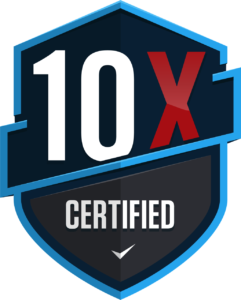In the dynamic world of business, the journey to success often hinges on the guidance and expertise of a mentor. This is where a professional business coach steps in, offering a beacon of wisdom for entrepreneurs and business owners alike. With the ever-growing demand for business coaching, the market is teeming with professionals claiming to be the key to unlocking your business potential. However, navigating through this vast sea of options to find a legit business coach can be a daunting task.
The surge in demand for business coaching services is a testament to their impact on business growth and success. From small business owners to heads of larger companies, many are seeking the insights of experienced coaches to steer their ventures toward greater heights. This heightened interest has led to an influx of business coaches, each promising to be the right mentor for your specific needs.
However, the industry’s unregulated nature adds a layer of complexity to the task of finding the right business coach. Without standardized benchmarks for qualifications and effectiveness, business owners must tread carefully. The risk of encountering coaches who lack the necessary experience or employ poor communication strategies is real. This makes the process of identifying a coach who not only understands the intricacies of your particular industry but also aligns with your business goals and values, all the more critical.
In the following sections, we’ll explore key strategies and considerations to help you navigate the world of business coaching. Whether you’re a budding entrepreneur or a seasoned business owner, finding the right business coach can make all the difference in achieving your business aspirations and unlocking more freedom to focus on what matters most in your business journey.

Understanding What a Business Coach Offers
A business coach is akin to a navigational expert in the vast and often turbulent sea of entrepreneurship and business management. Their role is multifaceted, combining elements of mentorship, strategic planning, and skill enhancement, all tailored to the unique needs of each business owner.
Primarily, a business coach offers insightful feedback, drawing from their wealth of experience to critique and refine your ideas. This feedback is invaluable as it comes from a place of understanding and expertise, ensuring that your business decisions are sound and strategically viable. Moreover, a business coach isn’t just a sounding board for your ideas; they are also a source of innovative and fresh perspectives, bringing new ideas to the table that you may not have considered.
In addition to offering feedback and ideas, business coaches are instrumental in providing tools for effective planning and execution. These tools range from practical templates and frameworks to strategic action plans, all designed to streamline your business processes and enhance your operational efficiency.
The world of business coaching is diverse, offering several specialized forms of coaching to cater to different business needs. These include:
Executive Coaching: Focused on business growth, executive coaches equip leaders with strategies and tools to improve their management skills, generate new ideas, and boost overall business performance. This form of coaching is particularly beneficial for high-level executives and business leaders looking to refine their leadership skills.
Leadership Coaching: Often used interchangeably with executive coaching, leadership coaching, however, has a distinct focus on resolving team conflicts, developing leadership skills, and addressing management-level challenges.
Performance Coaching: This type of coaching is goal-oriented, with a focus on continuous personal development and productivity enhancement in the workplace. It’s ideal for individuals looking to overcome mental blocks and achieve specific career goals in a shorter timeframe.
Each of these coaching styles offers distinct benefits, tailored to different aspects of business leadership and management. Whether it’s steering a company towards growth, refining leadership abilities, or enhancing personal performance, the right type of business coaching can have a transformative impact on both the individual and the organization.
By understanding the specific offerings and benefits of different types of business coaching, you can make an informed decision about which coaching style aligns best with your business goals and personal development needs.
Identifying Your Coaching Needs
Before diving into the world of business coaching, it’s crucial to have a clear understanding of your personal goals and the current stage of your business. This self-awareness serves as a guiding light in selecting the coach who can best address your specific needs.
Setting Personal Goals and Understanding Your Business Stage:
The first step is to introspect and define what you aim to achieve through business coaching. Are you a startup looking to establish your footprint? Or an established business poised for expansion? Your goals could range from improving leadership skills, enhancing employee management, fine-tuning your business strategy, to boosting cash flow. As highlighted by the U.S. Chamber of Commerce and Experian, aligning your coaching choice with your business stage and personal aspirations is key to ensuring the coaching services you receive are relevant and impactful.
Consider what success looks like for you and your business. Do you aim to achieve more freedom in your operations, elevate your company to the next level, or seek more effective ways to manage your team? Understanding these facets of your business needs will enable you to find the right business coach who can set a clear path towards these objectives.
Differentiating Between a Business Coach and a Business Consultant:
It’s also important to distinguish between a business coach and a business consultant, as they offer different services and expertise. As explained by Robin Waite, a business coach primarily focuses on developing your skills and strategies. They work alongside you, helping you to grow as an entrepreneur and leader, while encouraging self-discovery and personal development. A coach is more like a partner in your business journey, helping you unlock your potential and guiding you through challenges.
On the other hand, a business consultant is more hands-on in implementing strategies and making decisions for your business. They often delve into the specifics of your business operations, offering solutions and direct advice on business challenges. While a coach helps you to develop the skills to tackle problems, a consultant often provides the solutions themselves.
Identifying your coaching needs involves a deep understanding of your business stage, setting clear personal and business goals, and distinguishing the type of guidance you require – whether it’s the empowering approach of a business coach or the direct, solution-based expertise of a business consultant. Making these distinctions clear at the outset will greatly aid in finding the right professional to help you navigate your business journey toward success.

Researching Potential Coaches
When it comes to selecting a business coach, thorough research is crucial. This process involves a careful examination of a coach’s credentials, experience, and educational background, as well as an evaluation of their proven success and relevance in your specific industry.
Checking Credentials, Experience, and Education:
The U.S. Chamber of Commerce emphasizes the importance of looking into a coach’s professional background. This includes:
Educational Qualifications: Check if the coach has formal training or education in business, coaching, or related fields.
Certifications: Look for certifications from reputable organizations. These can include credentials from coaching associations which often require a certain level of training and adherence to ethical standards.
Experience: A coach’s experience is a vital aspect. How long have they been coaching? What kinds of businesses or entrepreneurs have they worked with before? Experience in coaching similar businesses or industries to yours can be particularly beneficial.
Assessing Proven Success and Industry Relevance:
According to Strategic Coach, assessing a coach’s track record of success is equally important. This includes:
Success Stories and Testimonials: Look for testimonials or case studies from past clients, especially those in a similar field or at a similar business stage as yours. These can give you insights into the coach’s ability to drive real results.
Industry Experience: A coach with experience in your specific industry can offer more tailored advice and strategies. They understand the unique challenges and opportunities within your field.
Results Achieved: Consider the specific outcomes the coach has helped others achieve. These could range from improved cash flow and business growth to better employee management and effective communication within teams.
Doing Your Due Diligence:
Finally, don’t hesitate to spend time doing your due diligence:
Interviews and Consultations: Many coaches offer a free consultation. Use this as an opportunity to ask specific questions about their approach, methodology, and how they have helped other business owners.
Online Presence: A coach’s online presence, including their social media profiles and professional website, can also offer insights into their expertise and style.
Check References: If possible, contact former clients to discuss their experiences. This firsthand feedback can be incredibly valuable.
Researching a potential business coach is a multifaceted process. It involves delving into their professional background, examining their track record of success, and ensuring their expertise aligns with your specific business needs and industry. By taking these steps, you can increase your chances of finding a coach who can truly help you achieve your business goals and elevate your entrepreneurial journey.
Evaluating Coaching Methods and Compatibility
Choosing the right business coach involves more than just verifying credentials and experience; it also requires understanding their coaching methodologies and ensuring a good fit between coach and client.
Understanding Different Coaching Methodologies:
Each coach has a unique approach or methodology to coaching, which can significantly impact the effectiveness of the coaching relationship. Strategic Coach highlights the importance of understanding these different methodologies to determine the best fit for your specific needs. For example:
One-on-One Coaching vs. Group Coaching: Some coaches offer personalized, one-on-one sessions focusing on your unique challenges, while others conduct group sessions, which can provide diverse perspectives and peer learning opportunities.
In-Person vs. Online Coaching: Consider whether you prefer face-to-face interactions or the convenience of online coaching sessions.
Hands-On vs. Consultative Approaches: Some coaches are more hands-on, providing specific advice and strategies, while others take a consultative approach, guiding you to find your own solutions.
The Importance of a Good Fit:
A good fit between the coach and client is crucial for a productive coaching relationship. Robin Waite emphasizes that the compatibility in terms of communication style, values, and mutual respect can greatly influence the success of the coaching experience. Consider the following:
Communication Style: Ensure that the coach’s communication style aligns with your preferences. Do they provide clear, concise advice, or do they engage in more open-ended discussions to encourage self-reflection?
Values and Philosophy: The coach’s values and business philosophy should resonate with your own. This alignment helps in building trust and a deeper understanding.
Personal Connection: A good coach should not only be an advisor but also a partner in your entrepreneurial journey. Feeling comfortable and connected with your coach is essential for open and honest communication.
Evaluating a coach’s methods and ensuring compatibility are essential steps in the selection process. Understanding the coach’s unique approach and ensuring it aligns with your preferences, needs, and values can lead to a more effective and fulfilling coaching experience. Remember, the right coach for you is one whose methodology resonates with your style and whose presence inspires confidence and trust in your journey toward business success.
Checking References and Reviews
When selecting a business coach, verifying their credibility through references, testimonials, and online reviews is crucial. This step is not just a formality; it’s an essential part of due diligence that can reveal much about the coach’s track record and reliability.
1. The Importance of References and Testimonials:
References and testimonials provide firsthand insights into the coach’s impact and effectiveness. CoachHub and the Better Business Bureau (BBB) both stress the importance of thoroughly checking these sources. Consider the following when evaluating references and testimonials:
Authenticity: Ensure that the testimonials are genuine and not just marketing material. Look for detailed stories and specific examples of how the coach helped previous clients.
Relevance: References from clients in a similar industry or with similar goals to yours can be particularly insightful.
Direct Contact: If possible, reach out to past clients directly to discuss their experiences and the outcomes of their coaching.
2. Online Reviews:
Online reviews can offer additional perspectives. While they should be taken with a grain of caution, as they can sometimes be biased or unrepresentative, they can still provide valuable insights. Look for reviews on independent platforms or social media to get a broader view of the coach’s reputation.
3. Warning Signs and Red Flags:
NerdWallet and the BBB highlight several red flags to be aware of when selecting a coach:
Overpromising Results: Be wary of coaches who guarantee immediate and high earnings. Realistic and honest coaches will set achievable goals.
Lack of Transparency: A legitimate coach should be open about their methodologies, fees, and what they can offer.
Poor Communication: Effective communication is key in a coaching relationship. If a coach is unresponsive or vague in their initial interactions, it could be a sign of future communication issues.
Questionable Credentials: Be cautious of coaches with unclear or unverifiable credentials. Always verify their background and qualifications.
This process helps ensure that you choose a coach with a proven track record of success and one who is likely to be a good fit for your specific needs and business goals. Paying attention to warning signs and red flags during this process can also help you avoid unqualified or unsuitable coaches.

Making the Decision
The final step in choosing a business coach involves a thoughtful consideration of various factors that align with your goals and expectations. Here’s what to keep in mind:
1. The Coach’s Investment in Your Goals:
A coach’s genuine interest and investment in your goals is a key indicator of a fruitful coaching relationship. According to the Better Business Bureau (BBB), the right coach should demonstrate a clear understanding of your objectives and show a commitment to helping you achieve them. They should be able to articulate how they can assist in reaching your specific business milestones and offer a tailored approach rather than a one-size-fits-all solution.
2. Assessing Their Expertise and Ability to Challenge You:
The expertise of your potential coach should align with your business needs. For instance, if you’re seeking to improve cash flow or fine-tune your marketing strategy, a coach with a strong background in these areas would be beneficial. Furthermore, a good coach should challenge you to grow beyond your comfort zone, encouraging you to explore new strategies and perspectives that foster personal and professional development.
3. Balancing Cost and Benefits:
Strategic Coach advises weighing the cost of coaching against the potential benefits. While budget considerations are important, it’s also crucial to think about the value a coach brings to your business. Consider questions like: What is the ROI of achieving my business goals with this coach? How will this coaching engagement improve my business’s performance or my personal effectiveness as a leader?
The investment in a business coach should be viewed not just in monetary terms but also in the value of the knowledge, strategies, and growth potential they offer. A good business coach can provide a significant return on investment by helping you navigate challenges more effectively, capitalize on opportunities, and achieve sustainable business growth.
Making the decision to hire a business coach requires careful consideration of their alignment with your goals, their expertise in your industry, their approach to challenging and growing your skill set, and the overall value they bring in relation to the cost. By thoroughly evaluating these factors, you can make an informed decision that best suits your business aspirations and leads you towards greater success.
Final Steps and Additional Resources
Once you have a shortlist of potential business coaches, the final steps involve further verification and utilizing additional resources to ensure you make the best choice.
Final Verification and Due Diligence:
Background Check: Conduct a thorough background check. The U.S. Chamber of Commerce and Psychology Today both stress the importance of this step. Verify the coach’s claims regarding their experience and achievements.
Consultation Session: Engage in a final consultation session with the coach. This is an opportunity to ask any lingering questions and gauge your comfort level with their coaching style.
Written Agreement: Ensure that there is a clear written agreement or contract. This should outline the coaching framework, goals, session schedule, confidentiality terms, and fees.
Ethical Standards: Confirm that the coach adheres to professional ethical standards. This could involve checking if they are a member of a recognized coaching body that enforces ethical guidelines.
Resources for Finding Coaches:
There are several resources available for finding qualified business coaches:
Industry Associations: Many industries have associations that offer resources for finding coaches. These associations often have directories of certified coaches who specialize in particular fields.
Local Chambers of Commerce: Your local Chamber of Commerce can be a valuable resource. They often have connections with business coaches who have a proven track record in the community.
Non-Profit Organizations: Organizations like the Small Business Administration (SBA) and SCORE provide resources and mentorship for small business owners. They can be especially useful for finding coaches who understand the challenges of running a small business.
Professional Coaching Bodies: Organizations such as the International Coaching Federation (ICF) or the Worldwide Association of Business Coaches (WABC) maintain directories of credentialed coaches.
Referrals and Networks: Don’t underestimate the power of referrals. Ask fellow business owners or entrepreneurs in your network for recommendations. They can provide insights into coaches with whom they have had positive experiences.
The final steps in choosing a business coach involve a meticulous process of verification and making use of various resources to ensure the coach you select is well-suited to your needs and objectives. By taking these steps, you can confidently embark on a coaching relationship that will support and enhance your journey towards business success.

Investing time and effort in this process is crucial. The right business coach can make a significant difference in your journey toward business success, providing you with the insights, strategies, and support needed to navigate challenges and seize opportunities.
If you’re looking for a legit business coach in Denver, consider contacting us at Business Coach Denver. Remember, the goal is not just to find a coach, but to find the right coach for you and your business. With the right partnership, you can achieve new levels of success and fulfillment in your entrepreneurial endeavors.

